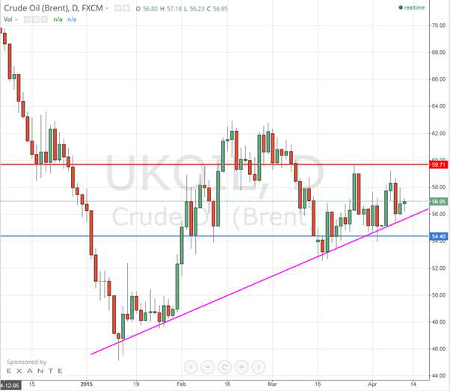OPEC decision could hit oil prices
8th June 2015 13:31
by Harriet Mann from interactive investor
Share on
Oil prices had weakened again recently, although remained above $60 ahead on low trading volumes ahead of last week's OPEC meeting. In Vienna, the oil cartel decided to keep its target production ceiling at 30 million barrels a day (bpd), but there are signs that some of its clout has been lost to the fundamental laws of supply and demand. This has pushed the anticipated price recovery period from months out to years.
The group of 12 producers, led by the Saudis, will have considered moderate GDP forecasts, higher expected demand in the second half of this year and lower output from non-member countries. However, OPEC is currently exceeding this figure by 1.2 million bpd, and with no country-specific plan, it's doubtful those countries relying on oil for economic stability will voluntarily sacrifice production without movement elsewhere in the group.
With demand growth still failing to match increasing supply inventories, Panmure Gordon's Colin Smith reckons there could be a 1.8 million supply surplus in 2015, which could drive forward cover of oil in storage to 65 days, the highest since 1993. The analyst thinks this closely-watched statistic is not consistent with oil prices at current levels.
Although growth in non-OPEC production has fallen, Smith blames this on its 2014 production step-up - this year's guidance remains at November's forecast of 57.2 million barrels. Indeed, chief executive Ryan Lance argues that improvements to technology and efficiency mean the development of US shale will survive against OPEC policy. It helps that many shale producers hedged a chunk of their first-half production before the fall in oil price, so it makes sense to keep up with production to meet debt service requirements, notes broker Westhouse Securities.
This suggests that Saudi Arabia's plan to reduce US output by keeping its market share isn't working.
"There is as yet no sign that OPEC's new approach has made any difference to non-OPEC output expectations, at least for the short term," says Smith. "In our view, historic experience shows that it is extremely difficult to force existing capacity out of the market through price on a compressed timescale."

(click to enlarge)
As spending on non-OPEC production is being deferred instead of cancelled, OPEC reckons it could take between four-five years for the industry to adjust, much longer than the previous timeline which was based on just months. Most had become comfortable with $50-$60 a barrel as the new industry norm, but Smith doubts OPEC has "the stomach" for years of weak prices, especially if further torment is on the cards.
"In our view, this OPEC outcome, while expected, could yet prompt a return to price weakness, as might a full nuclear deal paving the way for a ramp up in Iranian production. Otherwise a continuing inventory build at anything like current levels is likely to topple the market eventually, we expect. We remain tactically cautious on the sector."
Nerves hit the market before the OPEC meeting and a fall in Chinese fuel imports failed to ease concerns - Brent Crude has lost 4% of its value since last Tuesday and now trades below $63 a barrel. The next meeting is six months away, "a blink of the eye in the context of the oil sector", says Westhouse.
"It will take more time before the dramatic fall in oil prices feeds through to lower US production, but the drop in the rig count and drilling activity and the real stress many US independents are suffering, combined with the sharp decline rate of shale wells, will have the inevitable impact on volumes," the broker adds.
This article is for information and discussion purposes only and does not form a recommendation to invest or otherwise. The value of an investment may fall. The investments referred to in this article may not be suitable for all investors, and if in doubt, an investor should seek advice from a qualified investment adviser.